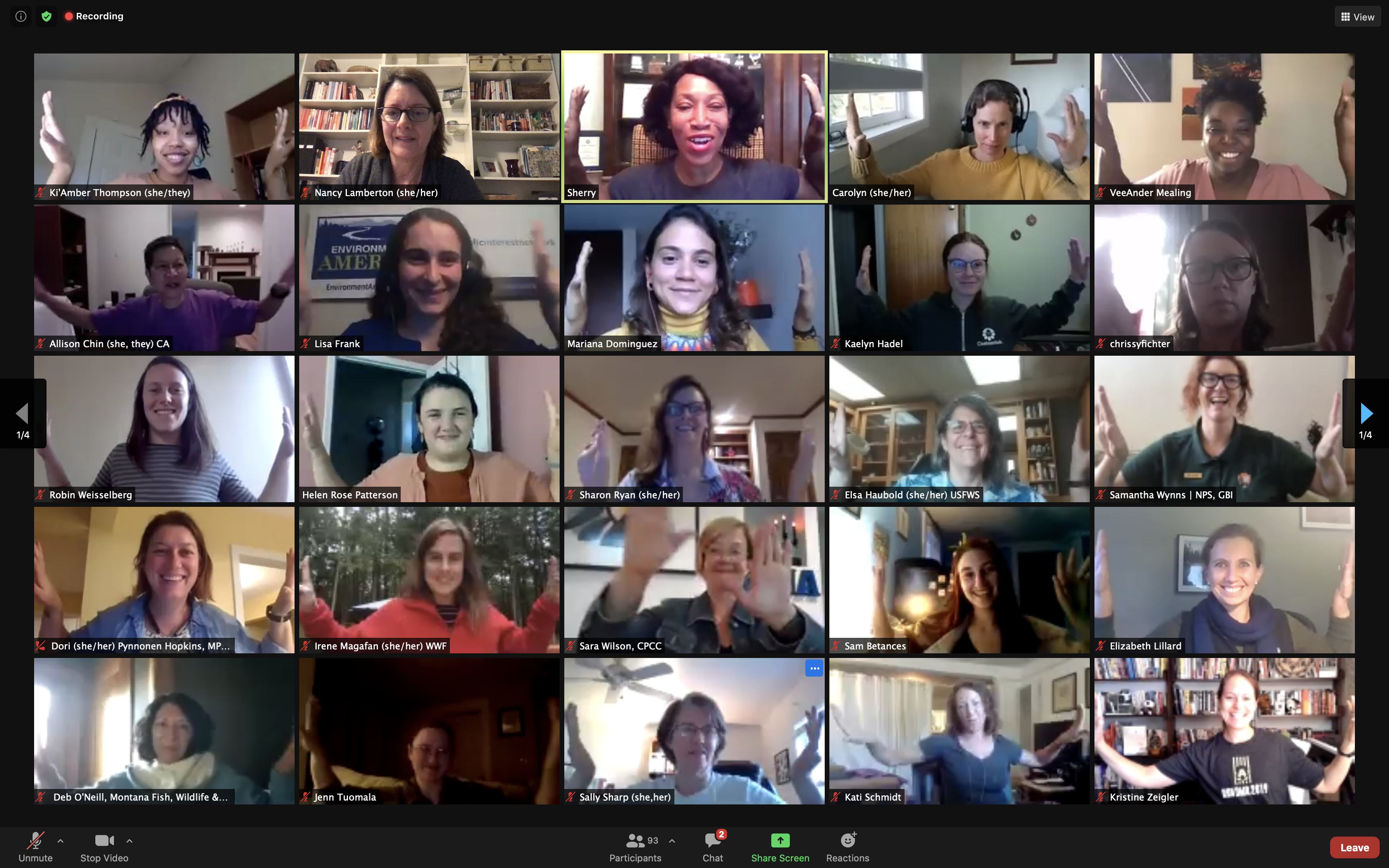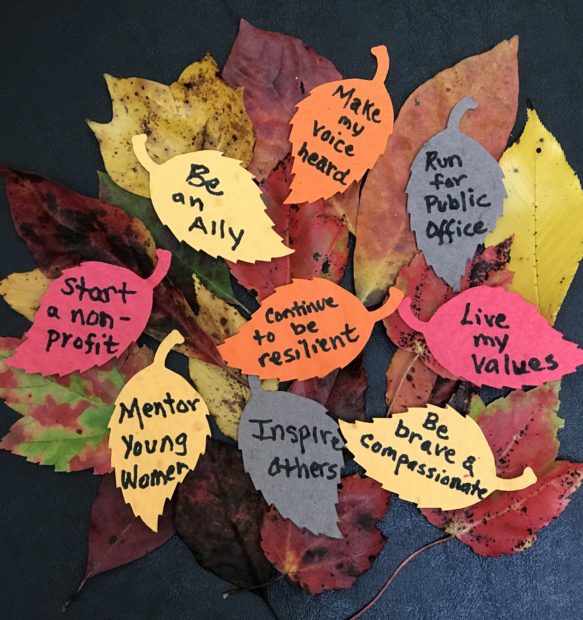We have much more to do and your continued support is needed now more than ever.
Lessons Learned from the 2020 Women in Conservation Leadership Summit

This Women’s History Month the National Wildlife Federation is sharing a few highlights from the 2020 Women in Conservation Leadership Summit, in which nearly 700 women from around the world came together, if only virtually, to strengthen their leadership skills, learn from one another and elevate diverse voices in the conservation movement. Here, we share a few key moments and lessons learned from the summit.
The 2020 summit embraced a commitment to ensure the event was focused on racial equity and justice. The vision for Women in Conservation Leadership is stronger conservation through women leaders of all ethnicities, races and cultures. To realize that vision, it is necessary to acknowledge the many biases that exist in the community and admit when mistakes are made. The process of centering equity and justice in the Summit was imperfect, and revealed biases and perspectives missed in the program.
History of Racism in the Conservation Movement and Lessons Learned
The second day of the Summit was originally planned to begin with a presentation around the history of racism in the conservation movement. However, the team reflected and realized that much of the history centers on erasure and violence against Indigenous peoples, and there were no Indigenous voices included as part of the presentation or as part of the planning team.
We realized that this was problematic and that the presentation could not proceed because the key voices were not at the table. With this recognition, we asked a breakout session panel of Indigenous women if they would speak as a plenary in place of the history session. This was a difficult request because it put a considerable burden on the Native women at the last minute. It was also embarrassing for our team because it revealed our biases and how easily we were able to forget the importance of people speaking for themselves.
They kindly agreed to speak, and as part of the opening, we shared our mistake with the entire Summit. We were reminded of an important equity practice: avoid speaking on behalf of people, and allow people to tell their own stories from their own perspectives. We were also reminded of the importance of accountability and repair as vital pieces of equity work.
Black Women and the Liberated Future – “You don’t have to lose in order for me to win”
Whitney Tome from the Raben Group moderated a panel of Black women representing different parts of the environmental field. Panelists included Kim Moore Bailey, CEO of Youth Outside, Ronda Chapman, formerly of PolicyLink, and former NWF board member Dianne Dillon-Ridgely. The panelists affirmed the importance and power of being in the space together and all agreed they did not want to talk about experiencing discrimination and problems they had faced in the past. Rather, the group moved beyond past oppressions and moved into imagining their shared vision for a liberated future. Ms. Dillon-Ridgely captured the conversation well by saying “You don’t have to lose in order for me to win.”
The Palau Pledge and Ecotourism
Debbie Remengesau, the First Lady of Palau, joined the Summit to share the story of her country and her work fighting climate change and promoting safe ecotourism. Her efforts to promote the Palau Pledge are world-renowned and are creating a promising future for the county of Palau. You can watch her remarks here, watch the Palau Pledge case study here, and the inflight video here, which all people arriving to Palau are required to watch.
Wildlife Ecology and Social Justice
Both wildlife ecology and social justice were central to the keynote presentation from Dr. Rae Wynn-Grant. Dr. Wynn-Grant shared her journey to become a world-renowned large carnivore ecologist, and how she links social justice to her conservation work. Her comments tied directly to many of the conversations being held throughout NWF and other environmental organizations about the need to illustrate the connections between these two fields and show how wildlife issues are human issues and human issues are wildlife issues. You can watch Dr. Wynn-Grant’s remarks below.
Vision for the future
Of the many lessons learned through the 2020 Women in Conservation Leadership Summit, it is clear that although the future holds hurdles, discrimination, and pushback, it also holds immense promise. The people who presented over the three days and the nearly 700 who attended are only a sliver of the community that is dedicated to conserving wildlife and creating equitable and just climate and environmental solutions for impacted communities, and that should inspire us to continue pushing forward. As we continue to work toward a more equitable future, we must remember who we are trying to center in this work and that our liberation is bound together.

As a result of feedback and post-conference conversations, the Women in Conservation Leadership team is shifting to think about gender equity more broadly, beyond the bounds of the gender binary, and considering how different identities intersect. We look forward to the next gender equity gathering and until then commit to elevating and empowering all voices in the fight for our planet.





















